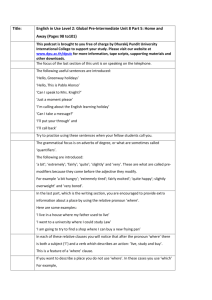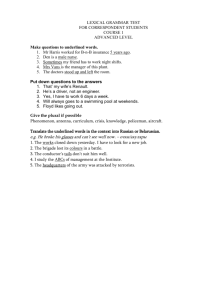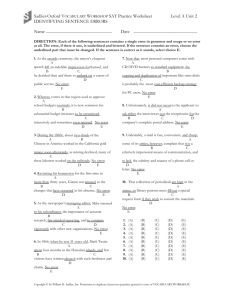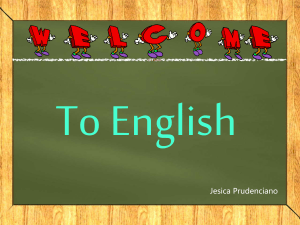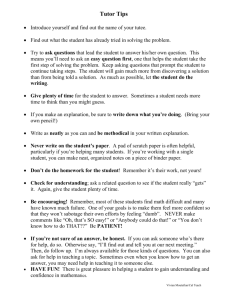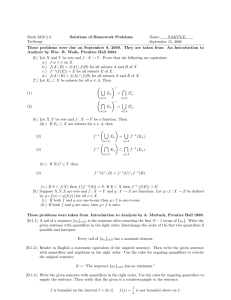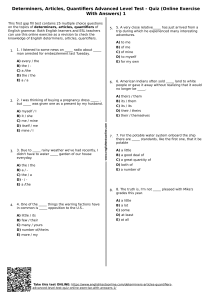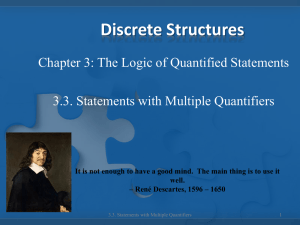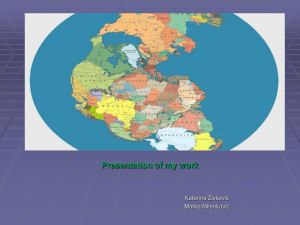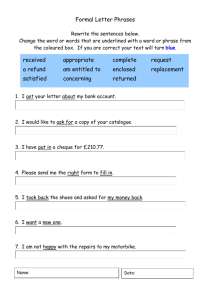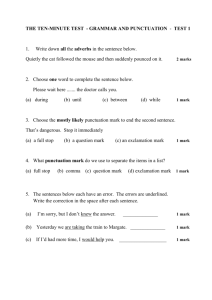The use of quantifiers - miptNJuPfirstyearstudents
advertisement
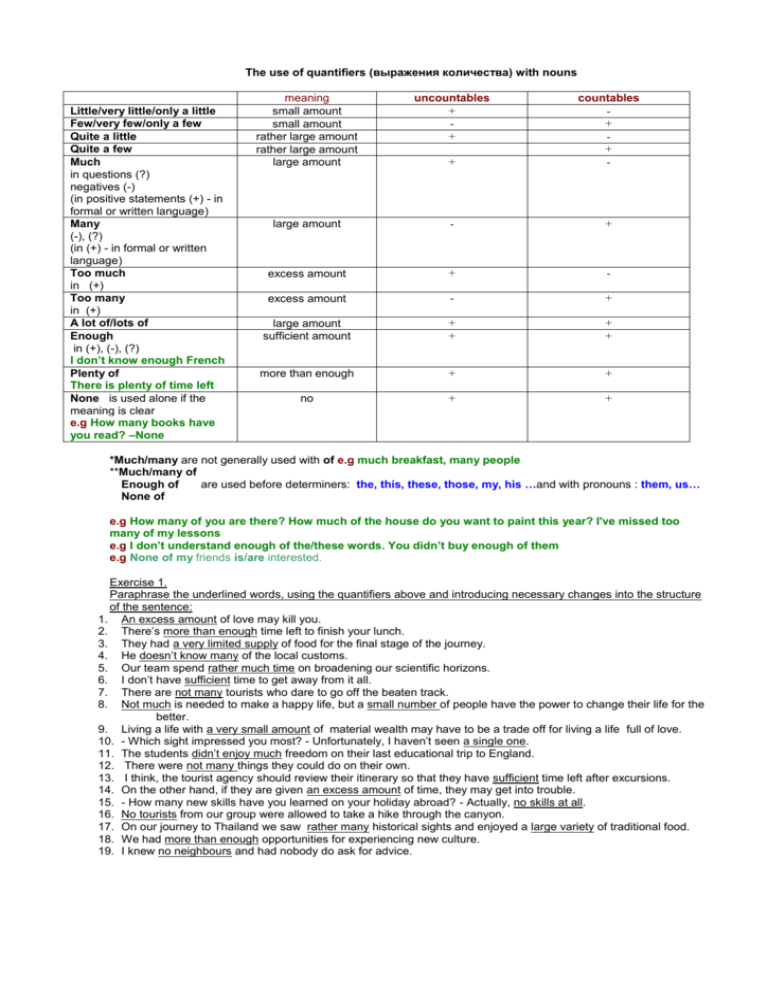
The use of quantifiers (выражения количества) with nouns Little/very little/only a little Few/very few/only a few Quite a little Quite a few Much in questions (?) negatives (-) (in positive statements (+) - in formal or written language) Many (-), (?) (in (+) - in formal or written language) Too much in (+) Too many in (+) A lot of/lots of Enough in (+), (-), (?) I don’t know enough French Plenty of There is plenty of time left None is used alone if the meaning is clear e.g How many books have you read? –None meaning small amount small amount rather large amount rather large amount large amount uncountables + + + countables + + - large amount - + excess amount + - excess amount - + large amount sufficient amount + + + + more than enough + + no + + *Much/many are not generally used with of e.g much breakfast, many people **Much/many of Enough of are used before determiners: the, this, these, those, my, his …and with pronouns : them, us… None of e.g How many of you are there? How much of the house do you want to paint this year? I've missed too many of my lessons e.g I don’t understand enough of the/these words. You didn’t buy enough of them e.g None of my friends is/are interested. Exercise 1. Paraphrase the underlined words, using the quantifiers above and introducing necessary changes into the structure of the sentence: 1. An excess amount of love may kill you. 2. There’s more than enough time left to finish your lunch. 3. They had a very limited supply of food for the final stage of the journey. 4. He doesn’t know many of the local customs. 5. Our team spend rather much time on broadening our scientific horizons. 6. I don’t have sufficient time to get away from it all. 7. There are not many tourists who dare to go off the beaten track. 8. Not much is needed to make a happy life, but a small number of people have the power to change their life for the better. 9. Living a life with a very small amount of material wealth may have to be a trade off for living a life full of love. 10. - Which sight impressed you most? - Unfortunately, I haven’t seen a single one. 11. The students didn’t enjoy much freedom on their last educational trip to England. 12. There were not many things they could do on their own. 13. I think, the tourist agency should review their itinerary so that they have sufficient time left after excursions. 14. On the other hand, if they are given an excess amount of time, they may get into trouble. 15. - How many new skills have you learned on your holiday abroad? - Actually, no skills at all. 16. No tourists from our group were allowed to take a hike through the canyon. 17. On our journey to Thailand we saw rather many historical sights and enjoyed a large variety of traditional food. 18. We had more than enough opportunities for experiencing new culture. 19. I knew no neighbours and had nobody do ask for advice. Exercise 2 In the following sentences, substitute one of these expressions for the underlined words: little, quite a little, or quite a bit of, few, quite a few To clarify, little means "not much," but quite a little (or quite a bit of) means "a rather large amount". Few means "not many", but quite a few means "a rather large number". 1. A rather large number of students have trouble with economics 2. It requires a rather large amount of reading. 3. Not many advisors spend as much time with their students. 4. He hasn't much hope of passing his exams. 5. George's advisor spends a rather large amount of time with him. 6. He doesn't know many people in the class. 7. Bill doesn't spend much money on clothes. 8. She spends a rather large amount of money on CDs. 9. He doesn't have many suits.; 10.He doesn't understand much of the reading.

